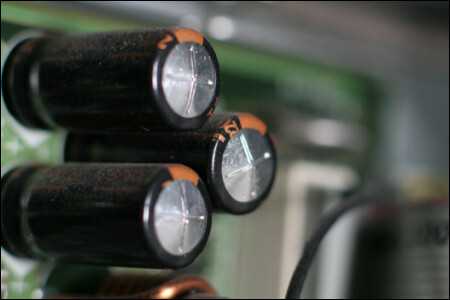1
2
I am having some troubles lately powering on my desktop workstation.
While starting up the PC after being off for hours (usually at least 8 hours) it randomly fails to do so.
What happens is that :
- I press the power button; nothing happens
- I can hear a moderate buzzing noise at the back of the PC (near the PSU); but I can't say for sure that it's not from the mainboard.
- If I insist pressing the power button a few times in 1-2 minutes it'll start
Another route would be that instead of (3) I will plug off the power cable from the PSU and wait for 30 seconds. Then I will press the power on and keep it for 30-60 seconds (I had some success at notebooks with a similar approach). Then I will plug back the cable in the PSU, press only once the power button and it will start normally.
Also while running normally I keep hearing some low buzzing which seems to be fan-RPM-related (i.e. when processing images or doing CPU intensive work).
What should I look into?
UPDATE
It's getting worse. It took more than 10 retries today and almost 20 minutes to start the computer. I tried the paperclip trick and the PSU behaves perfectly. I managed to start the computer like so : I pressed the on-button a few times and then left the PC in a pre-startup state (the fans were working the buzzing noise was strong and I went to eat. I thought I won't lit the house on fire so fast and without smelling. Back, after 10-15 min the computer booted up! Discussed with a fellow at Intel and he told me the capacitors on the mainboard are probably a bit shot. If they are shot, he said, it should start up warm perfectly. So I did restart it, warm, a few times (5 sec cooldown and then 40 sec cooldown and it started up perfectly). I can either replace the capacitors on the mainboard (doesn't sound worth it or replace the mainboard (this one sucks too :)) )
FINAL INFO : It was the PSU after all. Although it was powering the IDEs and SATAs the Mainboard power module was failing. I bought another mainboard just to find out that this wasn't the cause. Now I'll have to return it somehow. The spare PSU is now in the computer and doing well.. Although larger (500W), it's like a plane taking off.. I need a better one.

Since (near) the PSU is buzzing, and you're having power-on problems, I'd say your first suspect is your PSU, and you seem to also suspect it, so start there. – Ƭᴇcʜιᴇ007 – 2012-08-19T16:01:06.363
By start you mean replace it, right? I don't see how much can I inspect a PSU and, eventually, diagnose it. – Andrei Rînea – 2012-08-20T11:37:12.157
1Yes, I meant try a replacement PSU. :) – Ƭᴇcʜιᴇ007 – 2012-08-20T12:06:27.837
The Corsair CX400W PSU scores well on noise and budget.
– Cees Timmerman – 2013-07-16T08:45:29.043